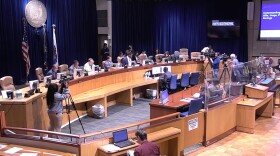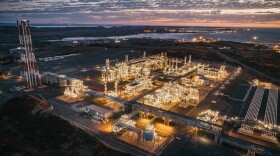
Michael McEwen
Coastal Desk ReporterMichael McEwen covers the environment for WWNO/WRKF's Coastal Desk.
Michael previously worked as a reporter and photographer for Mississippi Public Radio, covering state politics, police investigations, the criminal legal system, prisons, voting rights, natural disasters, environmental justice disputes and the causes and impacts of poverty in the country’s poorest state.
As a freelancer at South Florida’s NPR station, WLRN, he covered topics ranging from Everglades restoration, youth gun violence, Latin American politics and the aftermath of Hurricane Ian in coastal Lee County.
Michael has also researched indigenous land rights disputes in Nicaragua and the country’s post-revolution history. In 2025 he was recognized with two Regional Edward R. Murrow Awards for his continuing national coverage of the Rankin County "Goon Squad" and feature reporting from coastal Mississippi’s oyster fleet.
Michael was raised between coastal Southwest Florida and the Everglades and is beyond excited to call the Gulf home again.
Michael can be reached at michael@wrkf.org.
-
After months of complaints from residents about skyrocketing rates, Delta Utilities appeared before the New Orleans City Council to answer questions about its billing structure.
-
The special meeting to consider the future of data center development projects in the city was called shortly after news broke about a proposed data center in New Orleans East.
-
In a brief column for the conservative online outlet Breitbart, Landry directly tied Maduro to opioid deaths in the United States — particularly from fentanyl.
-
Proponents for the change say it will help the state be competitive for major developments. Critics, however, say it weakens long-standing consumer protections.
-
Today on Louisiana Considered, we get an update on arrests targeting immigrants in the New Orleans area. We also break down a year’s worth of news in energy, and discuss why the classic Nutcracker ballet remains a staple of the Christmas season.
-
Representatives for the locally-owned Smitty’s said the EPA and the LDEQ will still offer guidance as they resume control of the now charred and empty site.
-
There was a time back in the 1980s when overfishing had decimated popular fish like red snapper and grouper in the Gulf. Today, we hear the remarkable success story of how unlikely partners joined forces to save an industry and an ecosystem through a controversial program called catch shares.
-
The federal flood insurance program covers nearly 500,000 Louisianans. Real estate associations say the lapse in coverage will hamstring thousands of home sales.
-
If the program isn’t extended ahead of a government shutdown, officials say it could spell disaster for residents, business owners and the real estate market.
-
Woodside Energy’s $17.5 billion production and export facility, best known as “Louisiana LNG,” represents the largest foreign direct investment in state history.











